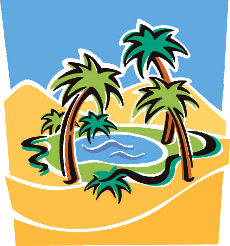KWL Chart
 The KWL chart was designed as an instructional reading strategy teachers could use to guide students’ textbook reading. However, you can use KWL to help you learn about a topic.
The KWL chart was designed as an instructional reading strategy teachers could use to guide students’ textbook reading. However, you can use KWL to help you learn about a topic.
Here is what a blank KWL chart looks like.
| K | W | L |
The K in KWL stands for what you already know about the topic. Complete the K column by thinking about and writing what you already know about the topic.
The W in KWL stands for what else you want to know about the topic. Complete the W column by writing the questions you want to answer about the topic.
The L in KWL stands for what you learned about the topic as you read your textbook and use reference sources. Complete the L column by writing the answers to the questions you wrote in the W column. Also, write in the L column other information you learned as you answered the questions.
Here is an example of a KWL chart that a student completed for the topic “Deserts.”
Topic: DESERTS
| K | W | L |
|
A desert is a dry area of land that is typically very hot. More than 1/5 of the world is desert. Hard for plants to survive in the desert. Hard for animals to survive in the desert. |
Are there any areas of water in a desert?
|
There are areas with water in a desert that are called an oasis.
They are found by an aquifer or an underground stream. Aquifer is an underground bed or layer that yields water. You’ll find more plants and animals by an oasis than in any other part of the desert. |
| How do plants survive? | Mostly by using their long roots to get to water below the ground. | |
| How do animals survive? | They avoid the heat of the day and come out only at night.
Mammals such as camels and rodents can go for long periods without water. So can many birds and insects. |
|
| What is the largest desert? | The Sahara Desert is more than 3 million square miles in area. | |
| Are there cold deserts? | The Gobi Desert can get as cold as -40° in the winter because it is far north of the equator. |
Using a KWL chart can help you bring together information about any topic.
